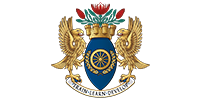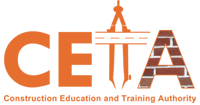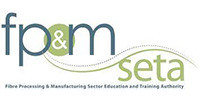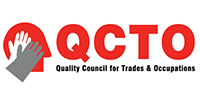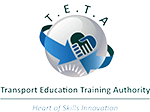If you are enthusiastic about extreme sports and risky adventures, you should consider completing a first aid course. Having adequate knowledge on how to handle injuries could prevent lasting damage to both yourself and anyone else participating in extreme activities with you.
First aid training ensures you are prepared for any situation, and It might even save a life. This article covers the importance of first aid training for outdoor activities, as well as 5 basic first aid techniques any outdoor sportsman should perfect.
South Africa is a country full of rugged terrain, interesting geography, and amazing wildlife. Many people enjoy experiencing these features via outdoor adventures such as rock climbing, scuba diving, rafting, and even paragliding, along with many more. As exciting as these activities seem, they come with extensive dangers. Taking part in an Emcare first aid course could make a tremendous difference in reducing your chances of serious injury, and preventing a bad situation from getting worse.
The importance of a first aid course for extreme sports
Most adventure sports tend to take place outdoors, far away from medical services, which means the injured individual often has a long time to wait before getting professional care. With many injuries, time is of the essence, and not getting medical attention immediately can have disastrous consequences. With outdoor sports, even something as simple as hiking, an accident can occur when you least expect it and you may need to be the first responder.
First aid training can prepare you for these kinds of emergencies so that you can make the best decisions under pressure. One of the most important skills regarding first aid is to understand how to stabilise an injured person until they can get professional medical attention. Knowing the basics can benefit you, but equipping yourself with proper training through a certified first aid course can help you take control of an emergency situation and handle it as safely as possible.
Extreme sports get your blood pumping and your heart racing. It’s no surprise that these types of adventurous activities would be popular. There’s no need to miss out on the fun, so long as you safeguard yourself with proper first aid training. Other risky sporting activities can include the following:
- River rafting
- Horse riding
- Mountain biking
- Abseiling
- Trail running
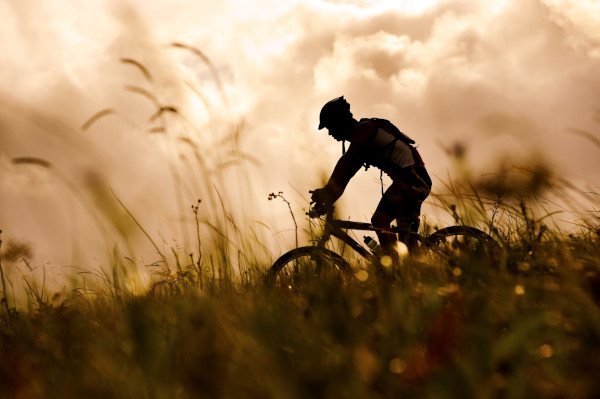
6 Basic First Aid Course Techniques For Outdoor Sports
The following are some examples of basic techniques you can learn during first aid training. These skills can benefit anybody who participates in extreme sports or might be at risk of injury from outdoor activities. Completing a first aid course will equip you with professional training to carry out these essential techniques.
- Care for a sprain: Having a sprained ankle or joint is one of the most common injuries that occur outdoors or in highly active situations. Although not fatal, they can be extremely painful. Taking a first aid course will equip you with the necessary steps to treat sprains. Caring for a sprain properly will protect the fragile joint and prevent further damage from occurring.
- Protect broken bones: You may not have the necessary equipment or training to mend broken bones outdoors, but a first aid course can prepare you with the necessary skills to protect broken bones until professional help arrives. Broken bones can be extremely dangerous, and cause a severed artery in your leg or arm, or damage to your spine if the break is in your back.
Knowing when to keep an injured person still until help arrives can be lifesaving, and knowing how to splint a broken bone can keep the injured person protected until they can get medical attention.
- Stop bleeding with direct pressure: A cut or open wound can cause dangerous bleeding which needs to be stopped as quickly as possible. This is usually done by applying firm and steady pressure directly to the wound. Knowing how to do this correctly, with the right steps and procedures, can prevent your victim from losing too much blood until they reach a hospital.
- Know how to perform CPR: (Cardiopulmonary resuscitation) saves around 100,000 lives each year, and this number could grow if more people knew how to perform CPR properly. In a situation where someone’s heart or breathing stops, CPR could save their life.
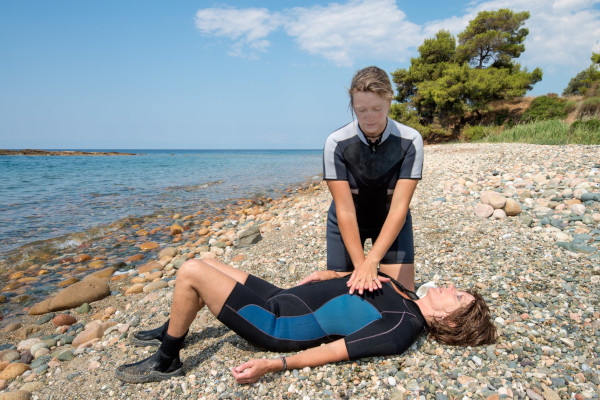
-
Deal with heat stroke: Heat exhaustion, or heat stroke, can easily be caused during
the summer months,
with outdoor activities in the hot sun. Knowing the importance of good hydration and cooling down
can
prevent you and your teammates from succumbing to exhaustion. -
Know the Heimlich Maneuver: This technique is effective at preventing someone from
choking to death. It
is an extremely important first aid skill as most emergency response teams can’t reach a victim in
time when
they are choking. When someone is choking, you will usually only have a few minutes to dislodge the
choking
hazard without it causing any permanent damage. A large number of people are saved each year thanks
to the
Heimlich Maneuver.
All of these techniques and skills can be highly beneficial in any sporting situation and can improve your ability to protect yourself and your loved ones. First aid training plays a major role in extreme sporting activities when you are most vulnerable and at risk.
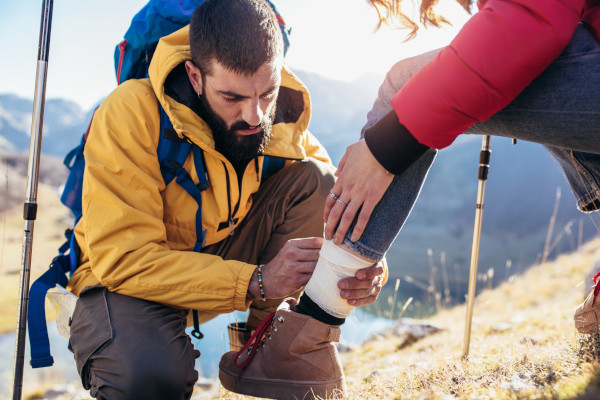
Emcare First Aid course opportunities
If you know you are at risk of injury due to the sporting activities you take part in, it is always a good idea to complete a first aid course. Taking precautions beforehand can benefit you greatly during an emergency situation, and an Emcare first aid course will equip you with a solid understanding of how to handle such situations. Emcare offers four different first-aid courses which include:
- Basic First Aid/ First Aid Refresher Course (FAR): This course takes one day to complete and is at an entry-level standard. It covers the most necessary basics and will leave you with the confidence to treat common wounds and injuries.
- First Aid Level 1 (FA1): This course takes place over two days, where you learn alongside medical professionals how to deal with emergency situations.
- First Aid Level 2 (FA2): This is an intermediate-level course that deals with a more detailed understanding of patient care and emergencies. It is completed in 3 days.
- First Aid Level 3 (FA3): This is an advanced level course, and the highest first aid qualification to gain. It will equip you with an extremely high level of skill to use in emergency situations. It takes 4 days to complete.
All courses are accredited by the necessary local bodies, and certificates are valid for 3 years. You will be trained by trusted professionals, and leave feeling capable of using your new skills to do some good.





